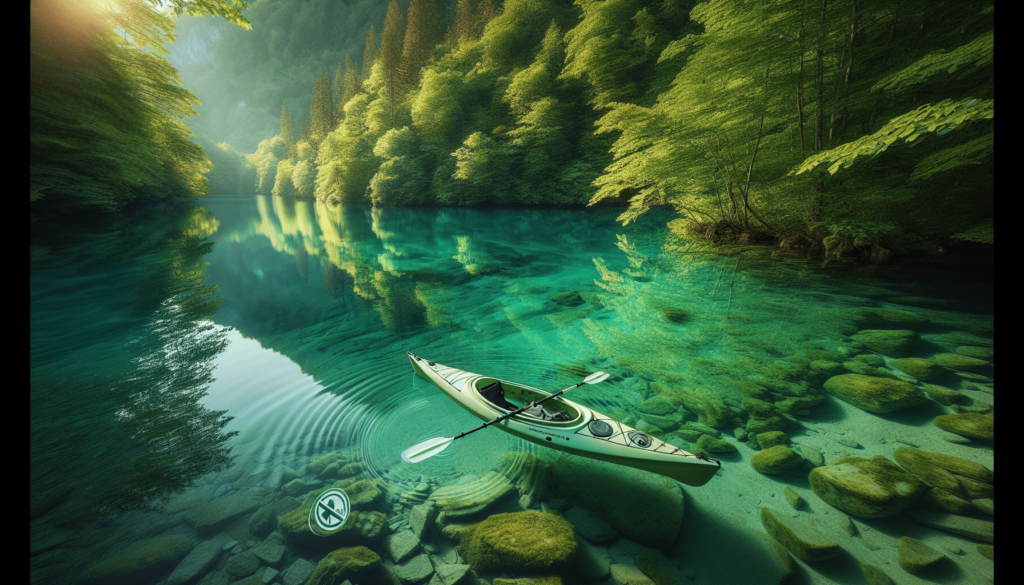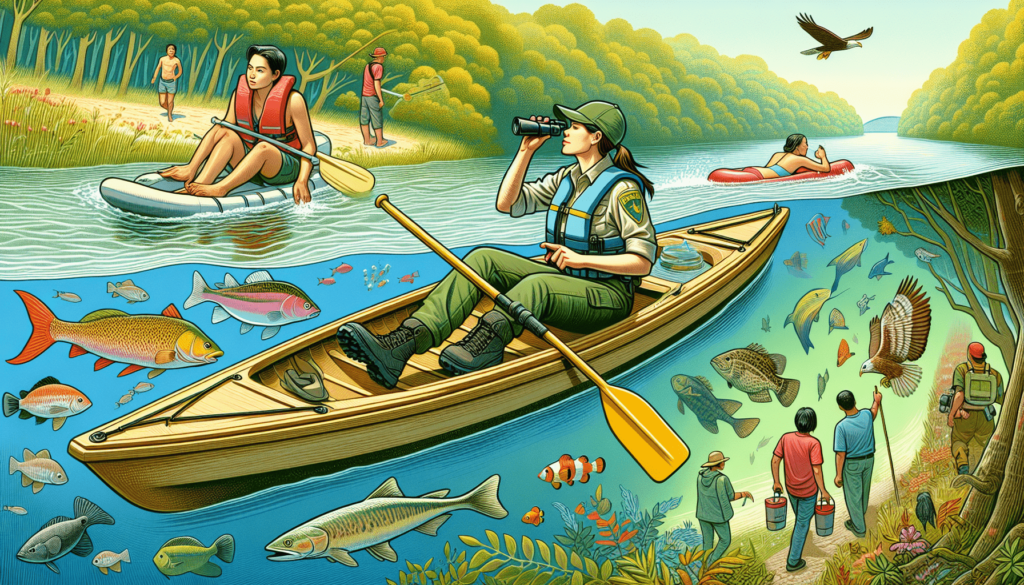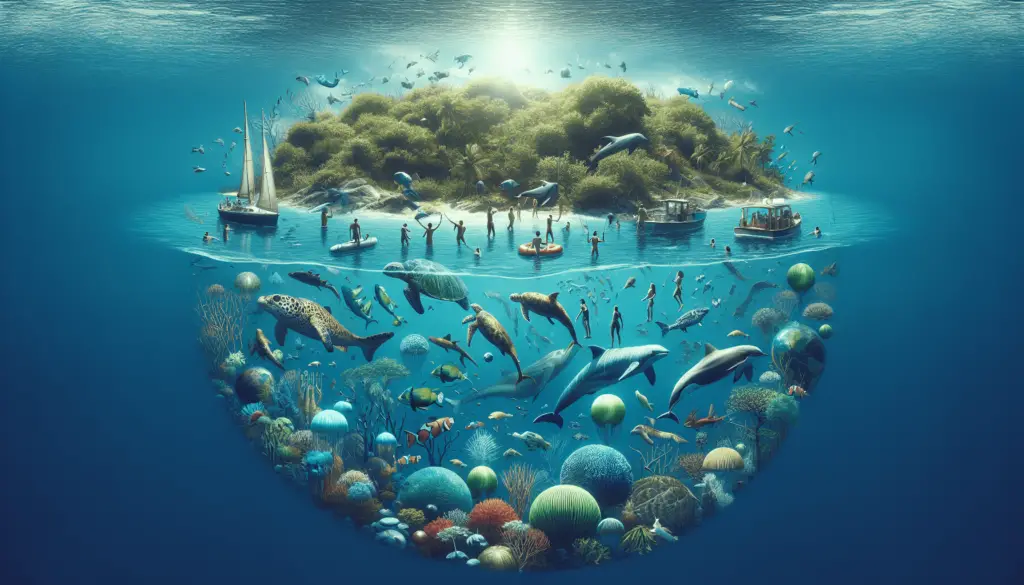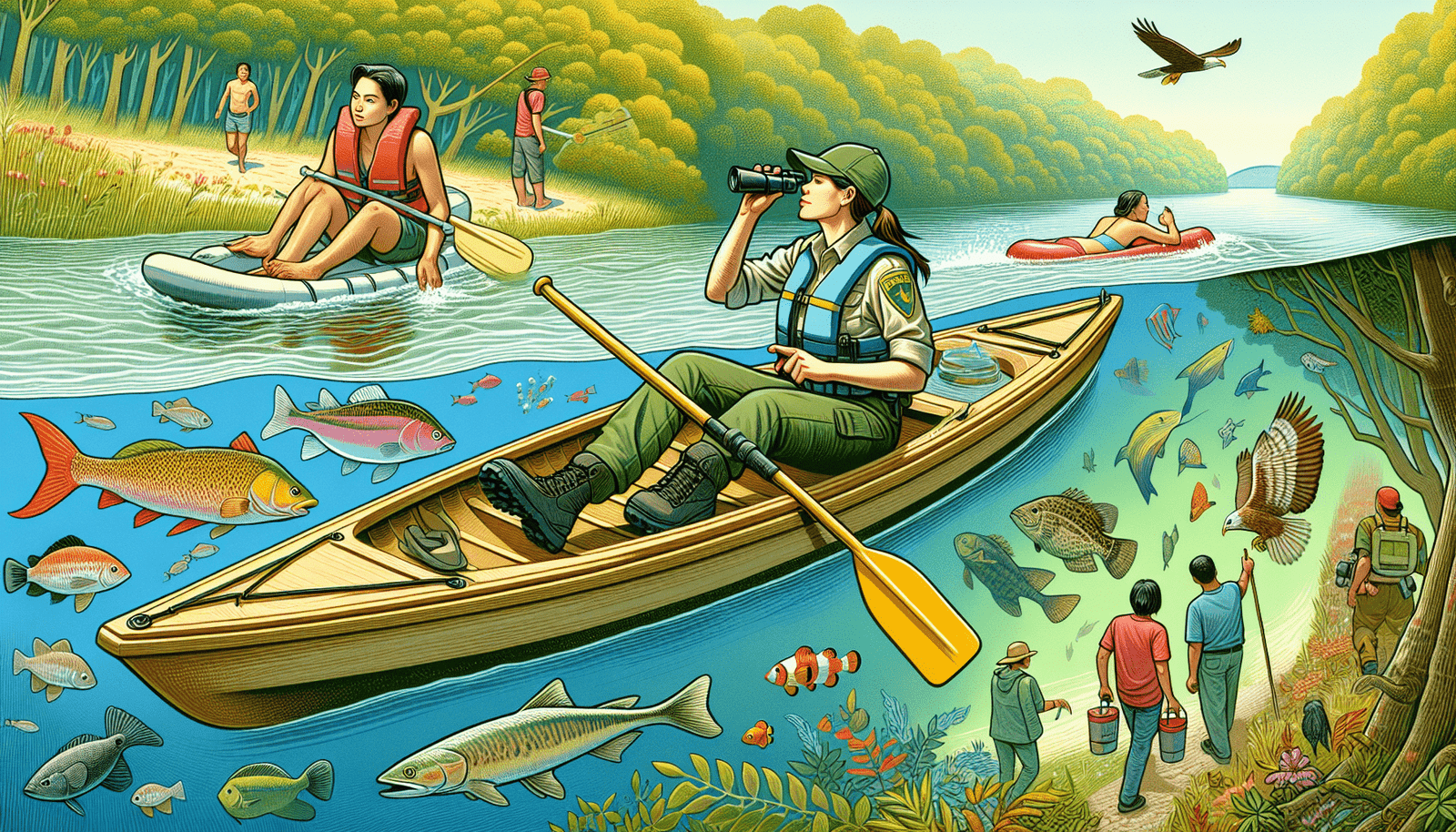Imagine the gentle lapping of waves beneath your kayak, the happy chirping of distant birds in an otherwise quiet marshland. This is the experience of water-based recreation in a thriving ecosystem. But, the serene moment of unity with nature may be posing unseen threats to this delicate ecological balance. The article, “Maintaining Ecosystem Integrity While Enjoying Water Recreation”, provides insights and directions on how to enjoy our beloved water activities while guarding the environmental sanctity. From the canals of Venice to your local lake, it demonstrates the importance of mindful enjoyment and outlines actionable ways to minimize recreational impact on these fragile water systems.

Understanding Ecosystem Integrity
When enjoying our natural resources, particularly water-based, it’s crucial to understand the concept of ecosystem integrity.
Definition and Importance of Ecosystem Integrity
Ecosystem integrity refers to an ecosystem’s capacity to support and maintain an ecosystem’s health, complexity, and biodiversity over time. It’s about ensuring our ecosystems are rich in diversity, resilient, and able to stay balanced. These ecosystems, in many ways, provide us with incredibly valuable services. From purifying our air and water to maintaining our climate and providing food, their health and wellbeing directly impact our own.
How Water Recreation Can Impact Ecosystem Integrity
Enjoying our natural water bodies for recreational purposes can have both direct and indirect impacts on ecosystem integrity. Activities such as swimming, boating, fishing, and kayaking each have their potential impacts to consider. These could vary from physical disturbance to animal habitats to potential pollution. Balancing the needs of recreational enjoyment with maintaining ecosystem integrity is a complex but vital task.
Different Types of Water Recreation
Today, water recreation activities are incredibly diverse. They include a range of activities, where some might be more disruptive to the ecosystem than others.
Boating and Water Skiing
Boating and water skiing are two activities that can have significant impacts. The movement of boats can cause physical disturbance, especially in shallow water areas where bottom-dwelling organisms reside. Additionally, the noise produced by these activities can also disrupt the behaviors of certain marine animals.
Swimming and Snorkeling
Swimming and snorkeling, on the other hand, while less invasive than boating, can still influence ecosystems. Direct contact with corals and other marine life can lead to damage or stress for these creatures.
Scuba Diving
Scuba diving presents a similar concern as snorkeling. Divers can inadvertently cause damage to coral reefs and marine habitats due to lack of knowledge or care. Additionally, the equipment used may also introduce pollutants to the water.
Fishing and Kayaking
Fishing and kayaking are additional forms of water recreation. Indiscriminate fishing can lead to depletion of fisheries and disruption of food chains. Damages could also be inflicted by kayaks running aground, causing erosion or damages to vegetation.

Impact of Water Recreation on Aquatic Ecosystems
Understanding the impacts of these various forms of water recreation will allow us to create strategies to mitigate them.
Physical Disturbance to Habitat
Physical disturbance can include anything from boaters pulling up vegetation with their anchors to swimmers accidentally stepping on coral reefs. Each time a habitat is disturbed, it can lead to a reduction in biodiversity, as well as pains for individual animals.
Water Pollution through Human Activity
Human activity can also lead to water pollution, both in terms of litter left behind and chemical pollution from things like sunscreen or boat fuel. Pollution can have devastating impacts on aquatic life, leading to declines in animal populations, algae blooms, and more.
Introduction of Foreign Species
Sometimes, recreational activities can introduce foreign species to a new ecosystem. This could include aquatic plants sticking to the bottom of boats, or the release of live bait. When a foreign species is introduced, it can out-compete local species for resources, leading to drastic changes in the ecosystem.
Sustainable Water Recreation Practices
While these impacts might seem discouraging, there are plenty of ways to mitigate them through sustainable practices.
Practicing ‘Leave No Trace’ Principles
The principle of ‘Leave No Trace’ encourages humans to respect nature by leaving it as they found it. This practice can significantly reduce most of the impact that human activities can make, from picking up litter to avoiding habitats of critical importance.
Choosing Sustainable Equipment and Gear
Luckily, many companies now offer sustainable or eco-friendly alternatives to traditional equipment and gear. This could mean choosing biodegradable products or gear made from recycled materials, which can help reduce your overall impact on the environment.
Using Certified Green Vessels
Another strategy is to use certified green vessels, which are boats designed to be more fuel-efficient, use less harmful materials, and generally have a reduced impact on the environment.

Government Regulations on Water Recreation
Government regulations also play a crucial role in managing water recreation and its impacts on ecosystem integrity.
Coastal Zone Management Act
In the United States, the Coastal Zone Management Act (CZMA) helps to manage coastal resources to balance economic development with environmental conservation.
Clean Water Act
The Clean Water Act (CWA) sets the standard for water quality in the United States, which includes recreational waters. It plays a crucial role in ensuring water activities don’t degrade water quality.
Marine Mammal Protection Act
The Marine Mammal Protection Act (MMPA) protects all marine mammals, prohibiting the “take” of marine mammals in U.S. waters and by U.S. citizens on the high seas, and the importation of marine mammals and marine mammal products into the U.S.
Roles of Environmental Organizations in Water Recreation
In addition to government regulations, a variety of environmental organizations also play a vital role in managing water recreation and its impacts.
Promoting Public Awareness on Ecosystem Protection
Many environmental organizations focus on education, promoting public awareness about the importance of maintaining ecosystem integrity. By understanding the threats to these ecosystems, people are more likely to make choices that mitigate their impact.
Advocating For Environmentally Friendly Practices
These organizations can also advocate for more sustainable practices in water recreation. This could be to encourage equipment providers to stock more sustainable options or to lobby for better government legislation for water recreation management.

Benefits of Maintaining Ecosystem Integrity while Enjoying Water Recreation
By implementing these strategies and creating a balance between enjoying water recreation and maintaining ecosystem integrity, we can experience numerous benefits.
Sustainable Tourism
One benefit is sustainable tourism. By focusing on the environment, we can ensure that future generations can enjoy the same resources we have today.
Increased Biodiversity
When we protect ecosystem integrity, we are also helping to conserve biodiversity. By reducing our disturbance and pollution, we give more room for a multitude of species to coexist and flourish.
Improved Quality of Recreation
It’s also beneficial for the quality of our recreational experiences. After all, cleaner water, healthier marine life, and stunning biodiversity all add to the magic of swimming, snorkeling, or kayaking.
Challenges in Balancing Ecosystem Integrity and Water Recreation
Despite these benefits, there are several challenges we need to overcome to create good balances.
Lack of Public Awareness
Many people may not be aware of the impacts their activities have on the environment. As such, increasing public awareness and education is a critical step in protecting ecosystem integrity.
Limited Government Resources For Enforcement
Government bodies often have limited resources for enforcing regulations. Therefore, the cooperation of the public and businesses is crucial for ensuring regulations are followed.
Resistance from Recreational Businesses
Some businesses might resist more sustainable practices because of perceived additional costs or inconvenience. Engaging these businesses and working together to find viable solutions could be vital in making headway.

Case Studies of Successful Ecosystem-Compatible Water Recreation
Many places worldwide have successfully managed to balance water recreation and ecosystem integrity.
The Great Barrier Reef, Australia
The Great Barrier Reef in Australia has implemented a number of strategies, such as zoning and permits, to balance the needs of tourism and conservation successfully.
Galapagos National Park, Ecuador
In Ecuador, the Galapagos National Park uses strict regulations to manage tourist behaviors and numbers and ensure preservation of the unique ecosystem.
Monterey Bay National Marine Sanctuary, USA
The Monterey Bay National Marine Sanctuary in the USA uses a combination of public education, scientific monitoring, and partnerships with local communities to manage water recreation sustainably.
Future Prospects for Harmonizing Ecosystem Integrity and Water Recreation
Looking to the future, harmonizing ecosystem integrity and water recreation will undoubtedly continue to be a vital goal.
Role of Technology in Monitoring and Protecting Ecosystems
New technologies could play a significant role, providing enhanced monitoring and protection capabilities and helping ensure compliance with regulations.
Increase in Green Tourism
The increase in green tourism also suggests a more positive future, with more tourists seeking out sustainable options and being willing to make necessary changes to protect the environment.
Further Strengthening of Government Regulations
There’s also potential for government regulations to be further strengthened, providing more robust protections for ecosystems while still allowing for responsible recreational enjoyment.
In conclusion, while balancing water recreation and ecosystem integrity is a complex challenge, it’s also an achievable one. By understanding the impact we have and taking active steps to lessen it, we can ensure a healthy and enjoyable environment for all.

